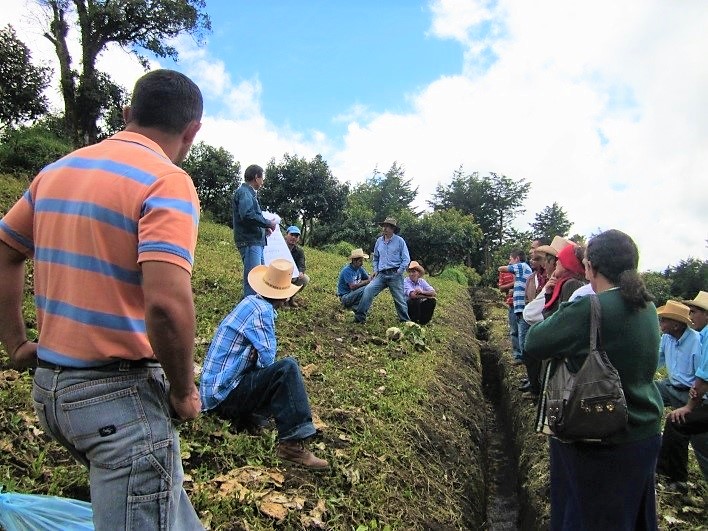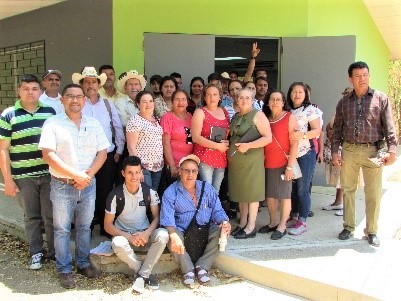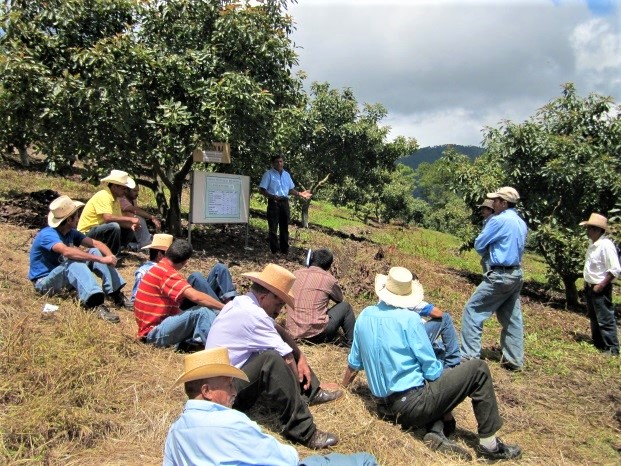"Action learning" and monitoring to increase capacities and knowledge
Learning about the construction of trench-type hillside ditches
Plan Trifinio @ Miguel Arévalo
Exchange of experiences between actors of the Sumpul and Goascorán river basins
IUCN @ Paul Aragón
Action learning: The benefits of terraced avocado production
Plan Trifinio @ Miguel Arévalo
Supporting producers to implement EbA measures that improve their productive practices and increase the resilience of agro-ecosystems, generates an "action learning" process that allows other actors to witness the benefits of these measures and creates conditions for their sustainability and up-scaling.
- The socio-environmental vulnerability of communities and their livelihoods is examined, in a participatory way, in order to then prioritize EbA measures and their location.
- Technical support is provided to producers, complemented with their traditional knowledge, to plan and implement the EbA measures (improvements to agroforestry systems).
- Training and exchanges of experience are carried out on transboundary cooperation; integrated management of water resources; AbE; policy frameworks and legislation on water and climate change; and policy influencing and communication.
- Monitoring of food and water security is carried out with 14 families.
- The governance and management capacities of community and municipal entities linked to water resource management is strengthened.
The increase in skills and knowledge strengthens social capital and contributes to community empowerment and to valuing ecosystem services and their management for the benefit of all.
- Climate change and, in particular, the availability of water, are factors that concern stakeholders in the sub-basin, which increases their willingness to take part in dialogue, constant learning, the search for solutions and joint actions.
- Plan Trifinio has been implementing conservation measures in the territory for years and works closely with local producers and actors. The institution also has ample experience with participatory processes, which is another enabling factor for successful “action learning” processes.
- To achieve changes at the landscape level, work must first be grassroots, at the community level. For this, strengthening the capacities of Water Committees, which are part of the Community Development Associations (ADESCOs), so that they can widen the scope of their interventions beyond sanitation requirements, has been crucial.
- Exchanges of experience (e.g. with actors from the Goascorán River basin and with other ADESCOs from other parts of the basin) were an effective mechanism to reinforce collective learning and demonstrate the advantages of transboundary collaboration.



